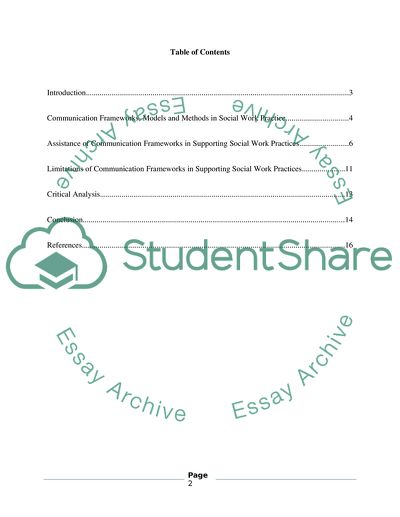Cite this document
(“Communication Frameworks, Models and Methods in Social Work Practice Term Paper”, n.d.)
Communication Frameworks, Models and Methods in Social Work Practice Term Paper. Retrieved from https://studentshare.org/social-science/1812281-how-does-understanding-theoretical-frameworks-models-and-methods-assist-you-in-developing-effective-diverse-communication-skills-which-can-be-applied-in-supporting-best-social-work-practice
Communication Frameworks, Models and Methods in Social Work Practice Term Paper. Retrieved from https://studentshare.org/social-science/1812281-how-does-understanding-theoretical-frameworks-models-and-methods-assist-you-in-developing-effective-diverse-communication-skills-which-can-be-applied-in-supporting-best-social-work-practice
(Communication Frameworks, Models and Methods in Social Work Practice Term Paper)
Communication Frameworks, Models and Methods in Social Work Practice Term Paper. https://studentshare.org/social-science/1812281-how-does-understanding-theoretical-frameworks-models-and-methods-assist-you-in-developing-effective-diverse-communication-skills-which-can-be-applied-in-supporting-best-social-work-practice.
Communication Frameworks, Models and Methods in Social Work Practice Term Paper. https://studentshare.org/social-science/1812281-how-does-understanding-theoretical-frameworks-models-and-methods-assist-you-in-developing-effective-diverse-communication-skills-which-can-be-applied-in-supporting-best-social-work-practice.
“Communication Frameworks, Models and Methods in Social Work Practice Term Paper”, n.d. https://studentshare.org/social-science/1812281-how-does-understanding-theoretical-frameworks-models-and-methods-assist-you-in-developing-effective-diverse-communication-skills-which-can-be-applied-in-supporting-best-social-work-practice.


